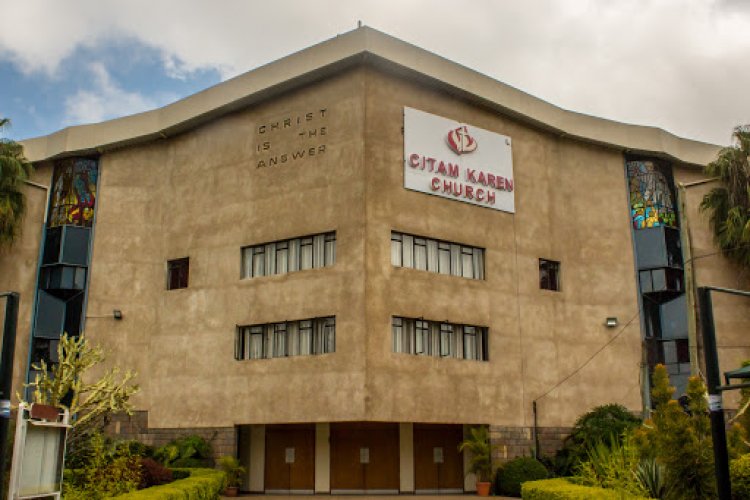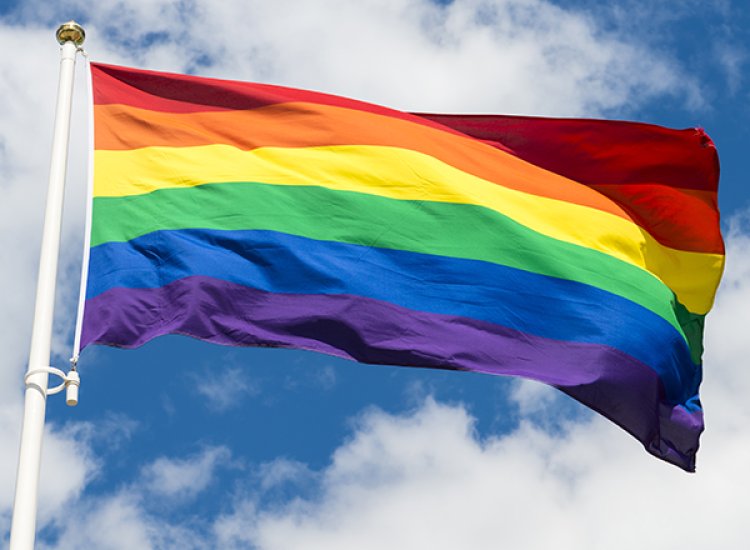CITAM Rejects Supreme Court Ruling, Offers Help To LGBTQ Kenyans
CITAM accused the apex court of delivering a ruling which was in contradiction to...

The Christ Is The Answer Ministries (CITAM) church issued a detailed statement on Sunday, February 26 explaining why it condemned the recent ruling by the Supreme Court of Kenya which handed a victory to Lesbian, Gay, Bisexual, Transgender, Queer or Questioning (LGBTQ) persons on the road to officially registering a Non-Govermental Organisation (NGO) in Kenya.
CITAM accused the apex court of delivering a ruling which was in contradiction to the existing laws that criminalize gay sex in Kenya.
Additionally, the ruling has left it wondering whether other illegal practitioners like paedophiles and those involved in incest also have a right of association and if not, how different they are from homosexuals and perhaps criminal organisations.

An LGBTQ flag. /FILE
"We note that this comes to us soon after sections of the Church in the West decided to bless gay unions. We truly commend the judges who ruled for God’s creative order and for cultural preservation and dissented from that majority ruling.
"Similarly, we also appreciate and stand with the sections of the Christian faith communities who have stood their ground on matters biblical in spite of the schism from their umbrella organisations," stated CITAM in part.
The church further affirmed that homosexuality is opposed to African cultural norms and is viewed as sinful, unnatural, and perverted according to biblical teachings, making reference to a number of verses in the Bible, which categorize immoral thoughts and actions as sinful, including homosexual behaviour.
According to the Bible, homosexual behaviour is a sin because it is disobedient to scriptural teachings and it is contrary to God's created order for the family and human relationships, meaning human life would become extinct if everyone practised it.
In addition, homosexual behaviour comes under divine judgement and is a sin but reconciliation and restoration to God are possible
CITAM added that while Scripture makes it clear that homosexual behaviour is a sin and comes under the judgment of God, it also indicates that those who are guilty of homosexual behaviour or any other sin can be reconciled to God. It is also one of the sins that Christ died for and can be forgiven.
"Because of the above as Christians, we do hate the sin but love the sinners with the love of Christ. Anyone struggling in these areas are welcome to any of our CITAM assemblies for counselling and prayer, as we believe God is able to forgive, restore and help one live a straight life that is God honouring.
"On the other hand, we encourage Kenyans of moral integrity to reject, resist and oppose this supreme court ruling as it will erode our societal norms and morals. We call upon Christians and Kenyans of goodwill to stand out in opposition to this ruling and express their disagreement openly," added CITAM.
CITAM church’s mission is to know God and make Him known through evangelism and discipleship. They pledged to pray and use other acceptable means to preserve the national ethos and moral fibre against negative external influences.
The highest court in the land on Friday, February 24 dismissed an appeal by the government to bar registration of a gays and lesbians lobby groups, ending an 11-year legal battle by activists seeking the official registration of an LGBTQ+ organisation in Kenya.
According to the five-judge bench's ruling, the Court observed that neither the NGO Coordination Act nor the NGO Regulations provide for any internal dispute resolution mechanism for the administrative action concerned. The Court was emphatic that an Act of Parliament must clearly provide for an internal dispute resolution mechanism before an aggrieved party can be bound by such a mechanism.
In addition, the refusal by the NGOs Coordination Board to register the lobby group would violate human rights based on sexual orientation. However, the court held that the country’s law - Section 162 of the Penal Code -that prohibits “unnatural offences” (defined as having carnal knowledge with any man, woman or animal against the order of nature) is binding.
The court stated that those who will contravene the Penal Code, which criminalises “unnatural offences”, will be subjected to sanctions prescribed in the existing laws. Section 163 prescribes a penalty of imprisonment for seven years for the offences.
By a majority of three judges against two, the court was of the view that the board's refusal of the registration of a non-governmental organization (NGO) seeking to champion the rights of LBGTQ+ (Lesbian, Gay, Bisexual, Transgender, Queer or Questioning) persons in Kenya was discriminatory.
Justices Philomena Mwilu (Deputy Chief Justice), Smokin Wanjala and Njoki Ndung’u said it would be unconstitutional to limit the right to associate, through denial of registration of an association, purely on the basis of sexual orientation. They held that the board’s decision to refuse registration of an LGBTQ+ group was “unreasonable and unjustified”.
"The Court determined that the use of the word “sex” under Article 27(4) does not connote the act of sex per se but refers to the sexual orientation of any gender, whether heterosexual, lesbian, gay, intersex, or otherwise. It was of the view that the word “including” under the same Article is not exhaustive, but only illustrative and would also comprise “freedom from discrimination based on a person’s sexual orientation," the apex court ruled in part.


 admin
admin 




